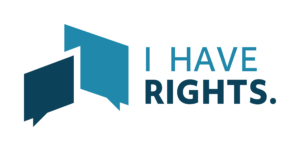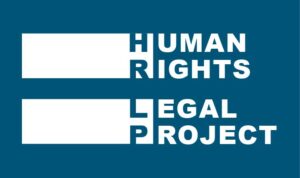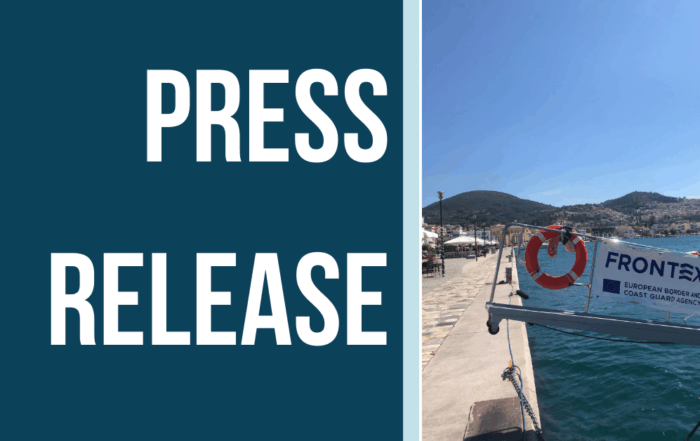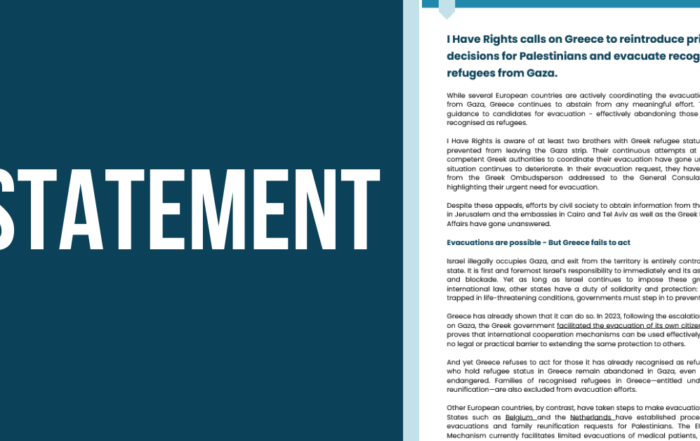

Press Release
Samos organisations, I Have Rights and the Human Rights Legal Project, present evidence to the Council of Europe on systematic human rights violations against people on the move in Greece, including torture, pushbacks and lack of investigations into such violations.
VATHY, 24 March 2023 – In their Rule 9 submission to the Committee of Ministers published this month, two Samos-based organisations I Have Rights and the Human Rights Legal Project (herein after the organisations) present evidence of systematic and structural human rights violations of people on the move on Samos.
Their evidence, presented to the Council of Europe’s Committee of Ministers, and published this month on HUDOC, the database for case-law of the European Court of Human Rights aims to assist the Committee monitoring of the implementation of the judgement Safi and others v. Greece (application no. 5418/15). The case concerned the 2014 capsizing of a boat close to the Greek island Farmakonisi, resulting in the death of 11 asylum seekers, three women and eight children, from Afghanistan. While the Court did not rule on whether the violations occurring during an informal forced return, the Applicants claim that the Hellenic Coast Guard was carrying out an attempted pushback. Ruling on the case, the European Court of Human Rights found Greece responsible for several violations including a substantive violation of the right to life, a substantive violation of the prohibition of torture and inhuman treatment due to shipwreck survivors being strip searched and beaten upon arrival to the island and a procedural violation of the right to life and the prohibition of torture due to lack of investigation into the deaths and torture of the applicants.
The organisations’ submission details how the human rights violations found in Safi are one example of the major structural issues that result in people on the move having their rights systematically violated upon arrival to Greece. The organisations present evidence from Samos, including of pushbacks, reports of inhuman and degrading treatment during pushbacks, including strip searches accompanied by beatings and unlawful cavity searches, and reports of police violence on new arrival groups in the forested areas of Samos as well as in the Samos Closed Controlled Access Centre. As well as detailing people on the move’s fear of reprisal when reporting violence at the hands of the Greek authorities, they also present evidence of delays in criminal proceedings against perpetrators of pushbacks, as well as systematic lack of interpretation services by the police and in Greek court proceedings.
In response to the organisations evidence, the Government claims that “the Safi case is of individual character”. In particular they allege that the Hellenic Coast Guard is efficient in rescuing lives at sea, “in the last 8 years […] the HC conducted 10.017 search and rescue operations, rescuing or assisting in total 384.634 irregular migrants”. It is no surprise that the Government makes no reference in its response to its systematic practice of the Hellenic Coast Guard pushing people on the move back at sea, nor do they dispute the evidence presented by the organisations.
Of interest is that the omission of the systematic practice of pushbacks places the Government’s response in line with the 2014 Piraeus Naval Court Prosecutor’s decision to archive the Safi case citing “push backs do not occur in Greece”. This tautological reasoning was the basis of the European Court of Human Rights finding that Greece had failed to properly investigate the deaths and inhuman treatment of the refugees, finding a procedural violation of the right to life. The denial, whether it be direct as in the Government’s public statements, or implicit as in its response to the organisations, points to the continuing complex problems survivors of pushbacks and violence at Greece’s borders face in the authorities investigating allegations of human rights violations. The Government’s response therefore provides stronger reasoning for the case to come under an enhanced supervision with a detailed action plan for its implementation.
After presenting the inadequacy of national mechanisms for obtaining redress including: the criminal-justice system and the highly controversial National Transparency Agency, the organisations make 18 recommendations on implementation of the Safi judgement. Turning first to individual measures, the organisations call for a criminal investigation to be reopened into the case, and for compensation to be paid to the applicants.
Second, for the classification of the case, the organisations highlight that Safi deals with highly complex issues of human rights and differs from existing cases due to the applicants being asylum seekers, they argue that it qualifies for enhanced supervision under a separate group of cases regarding alleged human rights violations by the Hellenic Coast Guard.
Finally, for general measures, amongst others, the organisations recommend the enhancement of procedural protections of victims of crime in the early stages of proceedings including the right to obtain access information in the exclusive possession of the authorities. They also emphasize that while criminal proceedings are the only appropriate response to incidents like those in Safi, Greek criminal proceedings rarely hold perpetrators to account.
In response to this shortcoming, the organisations submit that a dedicated complaints authority, I.e. an independent border monitoring mechanism, with specific expertise in human rights protection during border control/surveillance and returns operations may, rather than substitute the criminal-law process, it is meant to complement it, especially so if the authority in question is also given a monitoring function, being able to act proprio motu. In the Greek context, this would translate as a requirement to give prosecutors the possibility of dispensing with the need for a preliminary inquiry whenever the IBMM has recommended bringing a criminal action in respect of state actors’ acts of omissions in the field of border control/surveillance and returns. The organisations emphasis that such an independent border monitoring mechanism have institutional independence, broad mandate, adequate investigation powers, expertise, sustainable funding, work with civil society and be able to recommend criminal or disciplinary proceedings. It should be able to receive anonymous complaints by victims as well as public-interest complaints.
The organisations await the outcome of the Committee’s 1459th meeting this month in March.They hope that Safi may provide the Committee with a unique opportunity of engaging with Greece over one of the most pressing human rights issues today: pushbacks and violations during operations of border control.
Media contact
I Have Rights
Agathe Schramm | Advocacy officer
+306973528096
advocacy@ihaverights.eu
https://ihaverights.eu




Leave A Comment
You must be logged in to post a comment.